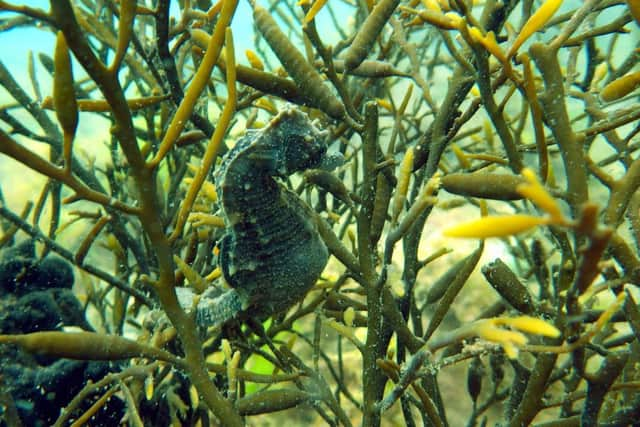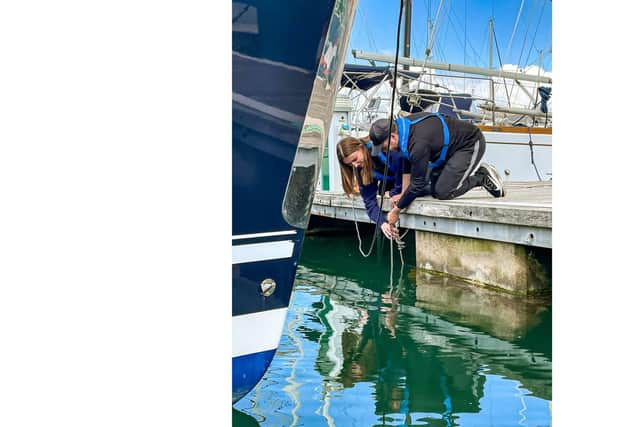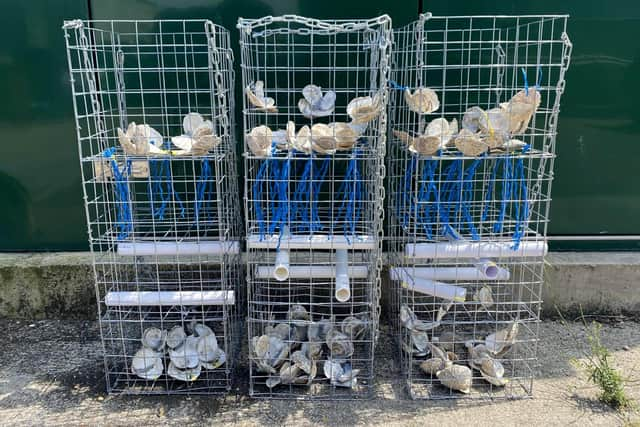Re-wilding project creates safe habitats for protected seahorse species in Portsmouth Harbour as university joins forces with marine partners
and live on Freeview channel 276
‘Biohuts’ have been created to provide a home for the short-snouted seahorse, one of the UK’s native species, as well as other juvenile and vulnerable marine wildlife.
Portsmouth university has joined forces with The Seahorse Trust and boating business boatfolk for the re-wilding project.
Advertisement
Hide AdAdvertisement
Hide AdResearchers worked with partners to install the first biohut cage system at Haslar Marina in Gosport


The biohut is an artificial marine aquatic nursery, which provides shelter to many juvenile species.
Dr Ian Hendy from the university’s Institute of Marine Sciences designed, built, and deployed the biohuts along with his two masters students, Stephanie Northen and Georgios Georgiou.
He said: ‘While many studies report on the decline of coastal biodiversity, we will be reporting on how the Biohuts have created new and safe habitats for a vast number of baby, rare, and endangered aquatic animals in the marinas of the Solent.


Advertisement
Hide AdAdvertisement
Hide Ad‘This project will greatly improve the vibrant wildlife, the environment and will benefit communities local to the Solent.’
The biohut restores the ecological nursery function that is lost when natural shallow coastal waters become urban environments.
A specialist gauge rope has also been added to give the short snouted seahorse the ideal environment to thrive, hunt and hide from prey.


Ben Lippiett, Haslar Marina manager, said: ‘Re-wilding projects like this make a real difference by providing juvenile species with a safe place to thrive, which can be a challenge in urban harbours like ours.
Advertisement
Hide AdAdvertisement
Hide Ad‘Through our underwater cameras, we hope this project will educate and inspire people about the huge amount of biodiversity within our seas.
‘We’re also pleased to name the Short Snouted Seahorse as the new mascot for Haslar Marina! The innovative Biohut systems have been specifically designed to help these majestic and protected creatures thrive.’
Neil Garrick-Maidment, executive director and founder of The Seahorse Trust, said:
‘By providing additional, secure habitats for the seahorses, boatfolk’s marinas will become a safe haven for so many important species.
Advertisement
Hide AdAdvertisement
Hide AdThe biodiversity that will build up under the pontoons will act as a natural filter and ecological reservoir, enhancing the site and making a considerable difference to the carbon footprint of the marinas, as well as increasing biodiversity in the region.’
